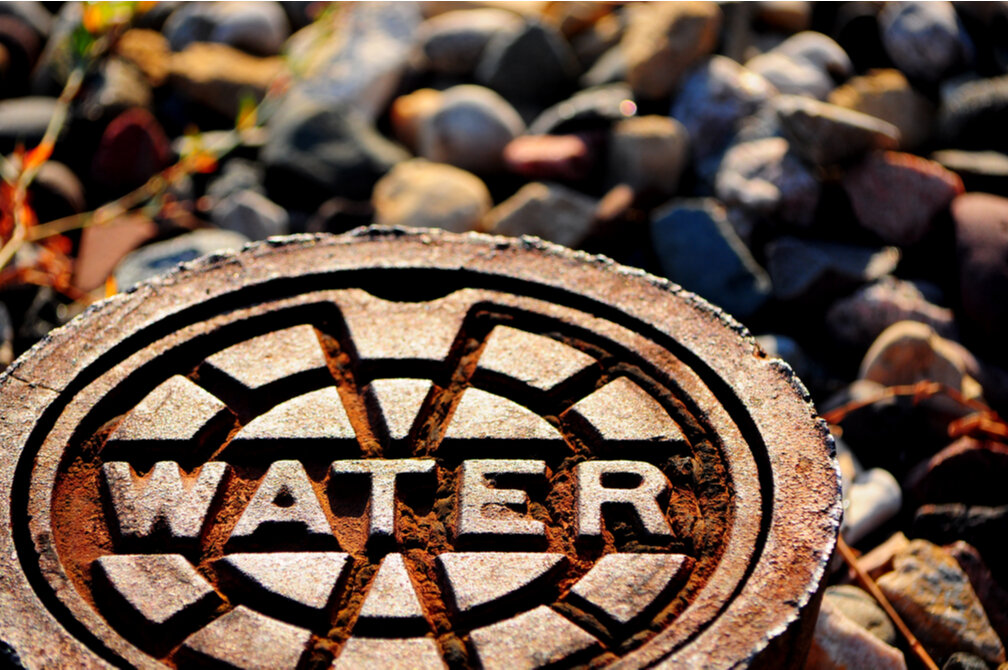No Water or Toilets in Health Facilities? That's Horrifying—And Funders Are Paying Attention
/Maternity waiting area in rural Ethiopia. Courtesy: Village Health Partnership. PHOTO CREDIT: Haik Kocharian
Foundations and nonprofits committed a new and substantial $120 million for global health at a convening in Washington, D.C., this summer. The pledges of support focus on an urgent challenge across developing countries that doesn’t get much attention: ensuring safe water and sanitation at hospitals and health clinics around the world.
Today, which marks the first-ever World Patient Safety Day, there are few conditions of greater vulnerability than to be sick and poor, or a woman giving birth, in a healthcare facility without safe water or basic sanitation. “Tens of thousands of hospitals and clinics are operating less as centers of healing than centers of infection,” said David Douglas of the Wallace Genetic Foundation, which pledged two million dollars to the cause.
Inside Philanthropy has profiled Douglas in the past, detailing his quiet role in funding and implementing work on global development. Douglas has backed efforts on water, sanitation and hygiene (WASH) for years, and lately has zeroed in on bringing safe water and sanitation to healthcare facilities, which he sees as a solvable problem—especially in the wake of the meeting in Washington. “This unprecedented collection of commitments confirms that these organizations will never allow the issue of WASH in healthcare facilities to be ignored again,” he said after the event.
This commitments gathering, which took place in Washington, D.C., in June, helped to spawn a second global event just completed in Zambia, where 18 nations began creating actionable plans.
A Solvable Global Crisis
Every year, 17 million women give birth in facilities without adequate WASH and 45 percent of healthcare facilities in the world’s least developed countries lack basic water services, according to the first-ever global baseline report released this spring. This data was culled from over 560,000 healthcare facilities in 125 countries by the World Health Organization (WHO) and UNICEF. They conclude what should be unimaginable: Some 2 billion people use healthcare facilities without basic water services, and 1.5 billion people use healthcare facilities without sanitation.
The Wallace Genetic Foundation’s $2 million pledge is focused on advocacy, and follows millions of dollars the foundation has committed to WASH in communities, schools and now healthcare facilities. Douglas sees safe and sustainable WASH services in hospitals and health clinics in low-income countries as a bedrock of global health that deserves to be prioritized by funders who support not just WASH efforts, but many other global health efforts, as well.
Peter Laugharn, president and CEO of the Conrad N. Hilton Foundation, a leader in water funding, agrees, and his institution pledged $13.5 million to this work. “Part of our commitment is financial,” Laugharn said. “But that’s not the most important part. We’re developing a new model of partnership and collaboration through demonstration sites at the district level in six countries that focuses on strengthening the capacity of local actors. We see this as benefiting not only the WASH community, but others working in health and education, too.”
Laugharn sees additional value for funders working at a systems-strengthening level in a system that is still evolving—and not rigid in the way that health and education can be. He says water also satisfies a number of donor criteria, including its tangibility and the fact that both grants and loans are possible, because it’s an infrastructure area involving the design of safe, reliable and affordable water services. Bottom line for the Hilton Foundation: “It is a basic need… Our mission is to alleviate human suffering and improve the lives of the vulnerable and the disadvantaged. There are few things that are going to incapacitate or block a person more than access to drinking water.”
The Hilton Foundation has been funding WASH, and particularly access to safe drinking water, for over 30 years. Laugharn estimates they spend $50 million every five years or so, and expects that may increase, adding, “We are trying to use it in a way that brings in other funding.”
A Unique Range of Funders and Strategies Come Together
The international foundation One Drop, founded by Guy Laliberté (creator of Cirque du Soleil), pledged $8 million in support of WASH initiatives in Haiti, Burkina Faso, Mali and Malawi. With its contacts in the worlds of arts, culture and entertainment, it creates new sources of financing, often from sectors that aren’t traditionally associated with philanthropy, and would otherwise not find their way to the WASH sector.
One Drop also has a unique approach to ensure that improved access to WASH translates into better and safer quality of care inside healthcare facilities through behavior training. Using locally inspired social art programs, they promote adoption of healthy hygiene behaviors. They call it “Social Art for Behaviour Change,” and it allows for creative collaborations with communities, partners and donors. Through multiple international projects, One Drop is consolidating and sharing its expertise with partners and agencies, including the U.S. Centers for Disease Control and Prevention (CDC) and Global Affairs Canada (GAC).
The biggest of the philanthropic announcements came from World Vision, which has assembled key partners to bring $100 million to the cause. “Partnership is important,” said Dr. Greg Allgood, vice president of water for World Vision, “because no one organization can do the job alone.”
World Vision’s partners in this major commitment include charity:water, Grundfos, the CDC, Conrad N. Hilton Foundation, the Dornsife Family, Golf Fore Africa, Midmark Corporation, Robert and Laura Abernathy, the Water Institute at the University of North Carolina-Chapel Hill, and Wells Bring Hope. Between 2019 and 2021, World Vision plans to put safe and sustainable WASH services into 800 rural healthcare facilities in 35 countries where it works, serving an estimated 7.2 million people.
“All too often, what should be a joyous occasion, the miracle of birth, instead becomes a death sentence for the baby and/or mother,” said Allgood. “This commitment will change that risk in the next few years for millions of people by ensuring adequate WASH services for the people in the least developed countries.” He is optimistic, saying, “This is something that we can get done. We’re already showing tremendous progress. The biggest hurdle to international development is believing we cannot have an impact. We are having an impact. Getting WASH into healthcare facilities is something that we will achieve.”
In addition to the philanthropies and nonprofits behind the new financial push for WASH in healthcare facilities, over 70 U.S. private organizations pledged millions more in in-kind commitments that include technical assistance, research, evaluation, training, long-term maintenance strategies and advocacy. Representatives from the World Bank, WHO, UNICEF, CDC, U.S. Agency for International Development (USAID) and the U.S. Department of State were also in attendance at the June meeting, adding their support.
Global Benefits
Organizers of this effort say that thousands of healthcare facilities stand to benefit across some 50 countries throughout Africa, Latin America and Asia. They also say that getting WASH into healthcare facilities could yield major global health dividends, including improved maternal and child health, safer surgery, reduced infections and pandemics, and more. In turn, these gains could pay dividends beyond patient care. Healthier families are more economically productive, children are better educated, and poverty reduction more likely.
“WASH is a tremendous sector to invest in,” said Laugharn. “You can see progress immediately, but you can also have a very impressive accomplishment arc in front of you over a 10-year span. The more funders we have, the more likely we are to have momentum, and I think for funders who are interested in leverage, there are tremendous possibilities.”
The Washington, D.C.-based convening took place in June at the Pan American Health Organization. See a summary of the 80 commitments pledged thus far.
Susan Barnett is a former network journalist, guest contributor to Inside Philanthropy, and communications lead for Global Water 2020, which co-sponsored this convening with the Global Health Council. More information and resources at www.washinhcf.org.























